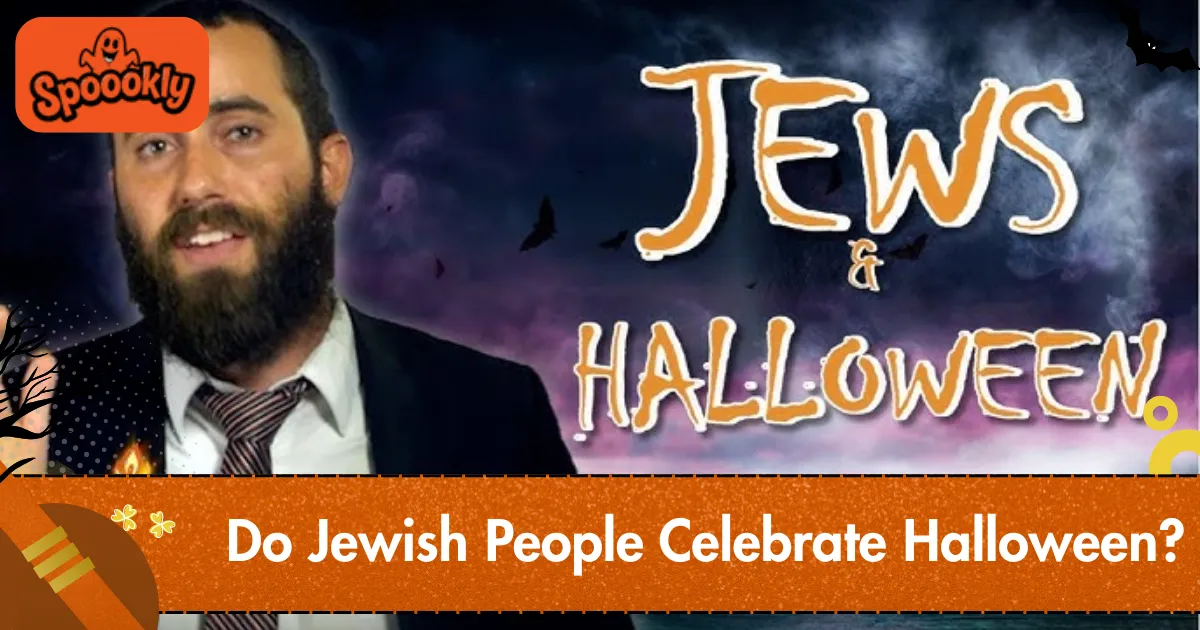Halloween is one of the most popular holidays in the United States, but it is not widely observed by Jewish people.
The reasons are tied to history, religion, and cultural practices. While some Jews may join in the fun for social reasons, others choose not to participate at all. In Jewish tradition, holidays are generally rooted in religious meaning or cultural heritage.
Halloween’s origins come from ancient Celtic festivals and later Christian influences, which are not part of Jewish history. Because of this, many Jewish families don’t see it as a holiday that aligns with their traditions.
Historical and Religious Background of Halloween
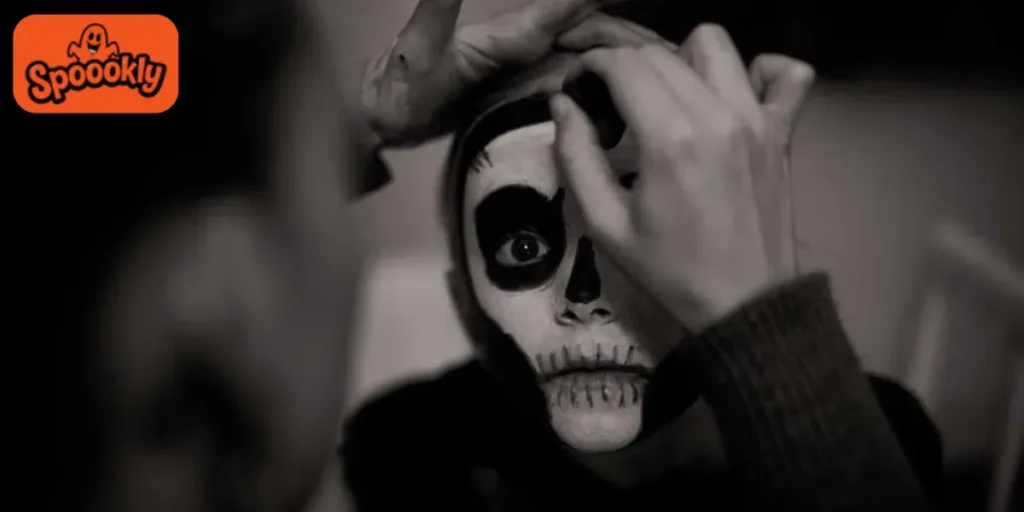
Halloween began as the Celtic festival of Samhain, marking the end of the harvest season. Later, it merged with Christian observances like All Hallows’ Eve.
These roots make it a holiday with spiritual connections outside of Judaism. For observant Jews, celebrating a holiday with origins in another religion may feel inappropriate.
Judaism places emphasis on avoiding the adoption of religious customs from other faiths. While Halloween is now mostly secular in many places, its symbolic elements still come from non-Jewish traditions. This is one reason some Jewish families prefer to skip it entirely.
The Jewish Perspective on Non-Jewish Holidays
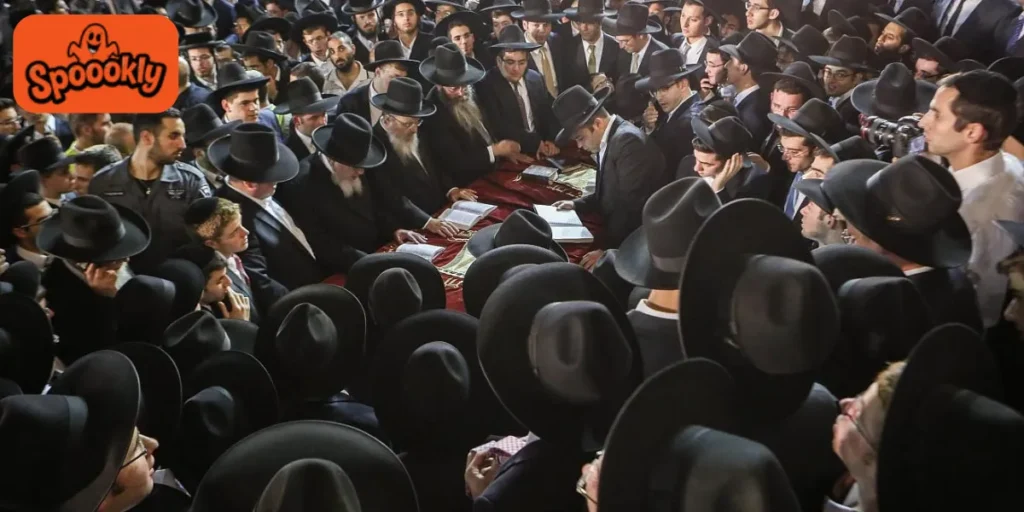
The Torah and Jewish law, known as Halacha, guide how Jewish people approach non-Jewish customs. Many rabbis advise avoiding participation in religious or symbolic practices from other faiths.
This doesn’t mean Jews cannot enjoy fun activities, but it does mean that they might adapt celebrations to fit Jewish values.
Some Jewish families allow children to dress up or collect candy but avoid decorations or rituals with spiritual symbolism.
Others choose to celebrate Jewish holidays like Purim instead, which also involves costumes and sweets but comes from Jewish history and teachings.
Cultural Adaptation Among Jewish Communities
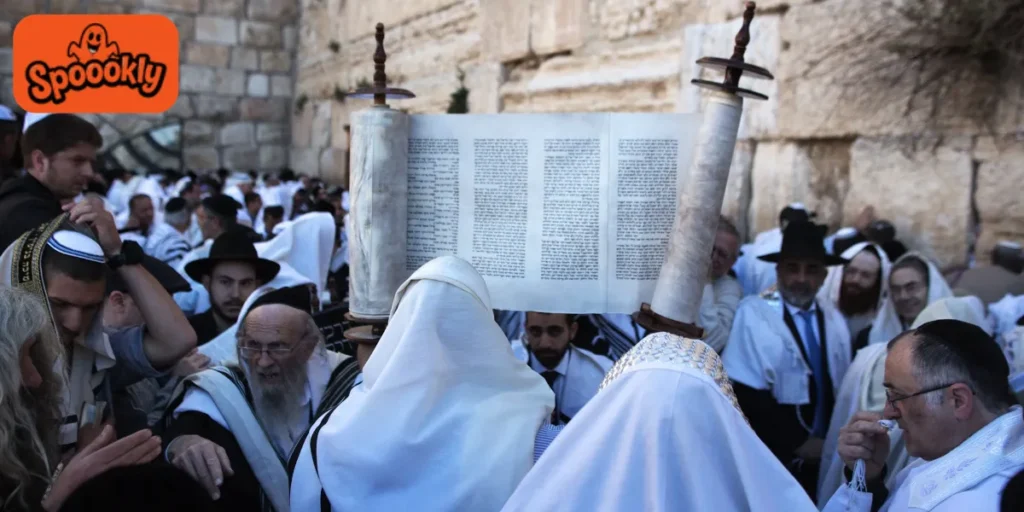
Jewish communities are diverse, and practices can vary widely. In more secular or culturally Jewish households, Halloween might simply be seen as a fun community event.
Children may dress up as superheroes, animals, or other non-spiritual characters, and families may hand out candy without attaching religious meaning.
In contrast, more observant Jewish families often prefer to focus on their own holidays and traditions. For them, skipping Halloween is a way to maintain a strong connection to Jewish identity and avoid blending religious lines.
Differences Between Orthodox, Conservative, and Reform Jewish Views
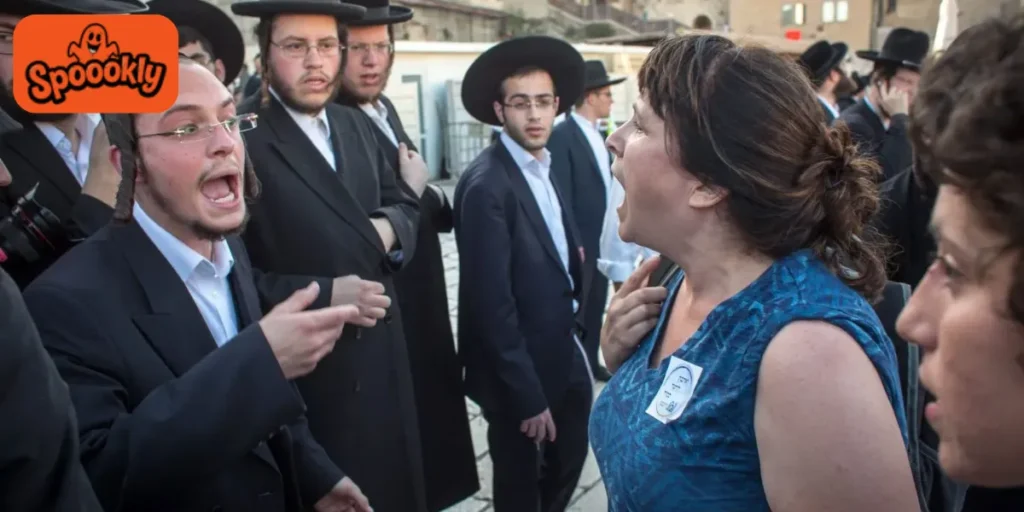
Orthodox Jewish communities are the least likely to celebrate Halloween. Their approach follows Halacha strictly, avoiding customs with origins outside Judaism.
For them, even secular Halloween traditions may feel too connected to non-Jewish religious history.
Conservative Jewish communities take a middle-ground approach. Some families allow children to participate in community trick-or-treating but avoid symbols like witches, ghosts, or skeletons that carry spiritual or superstitious meaning.
Reform Jewish communities are generally the most relaxed about Halloween. They may treat it purely as a cultural event, focusing on costumes, candy, and neighborhood fun. However, even in these communities, families often personalize how they take part.
Halloween vs. Purim | A Jewish Alternative
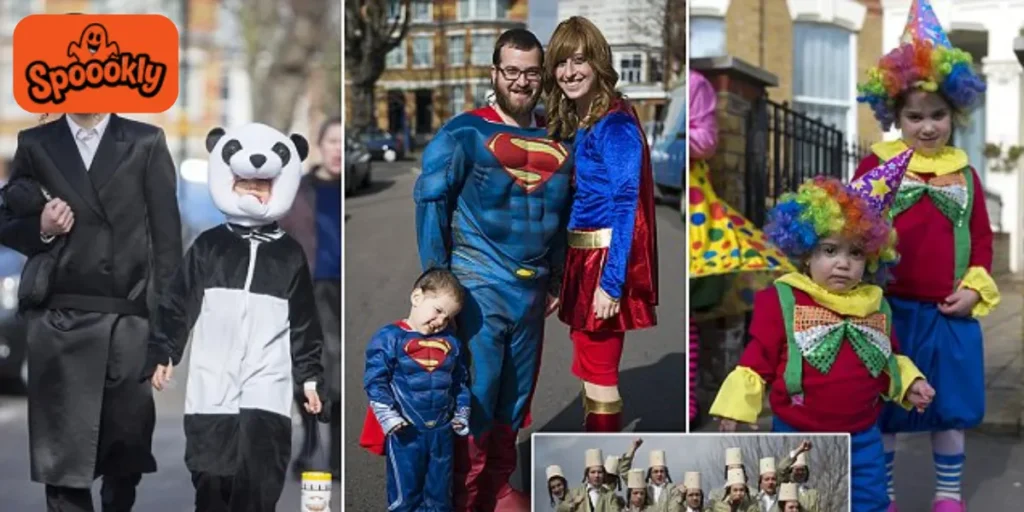
Purim is a joyful Jewish holiday that shares some similarities with Halloween. Both involve costumes, festive activities, and giving treats. However, Purim comes from a biblical story and celebrates Jewish survival and resilience.
During Purim, children dress as characters from the Book of Esther, exchange food gifts known as mishloach manot, and attend lively gatherings. This holiday allows Jewish families to enjoy costumes and sweets without adopting customs from another religion.
For some Jewish parents, pointing children toward Purim helps them feel included in a similar tradition while staying connected to their faith. It also provides an opportunity to teach Jewish history in a fun way.
Modern Debates in Jewish Communities About Halloween
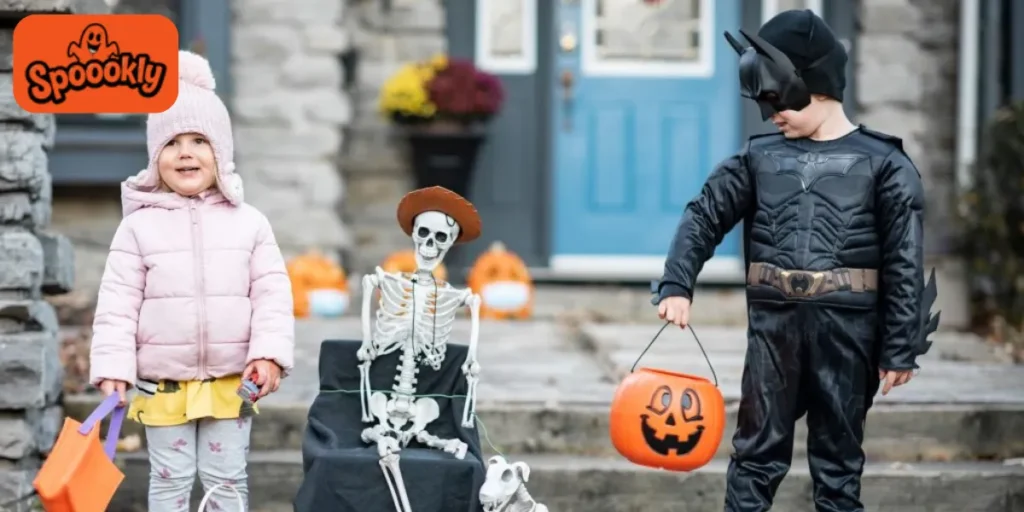
In today’s multicultural societies, Jewish families often live alongside neighbors who celebrate Halloween. This can create discussions about whether participation harms or strengthens Jewish identity.
Some argue that joining in promotes community connection and inclusivity. Others believe that skipping Halloween helps preserve cultural and religious distinctiveness.
These differing views reflect the diversity within Judaism itself. The choice often depends on personal beliefs, family traditions, and the surrounding community environment.
Social and Educational Aspects of Halloween in Jewish Life
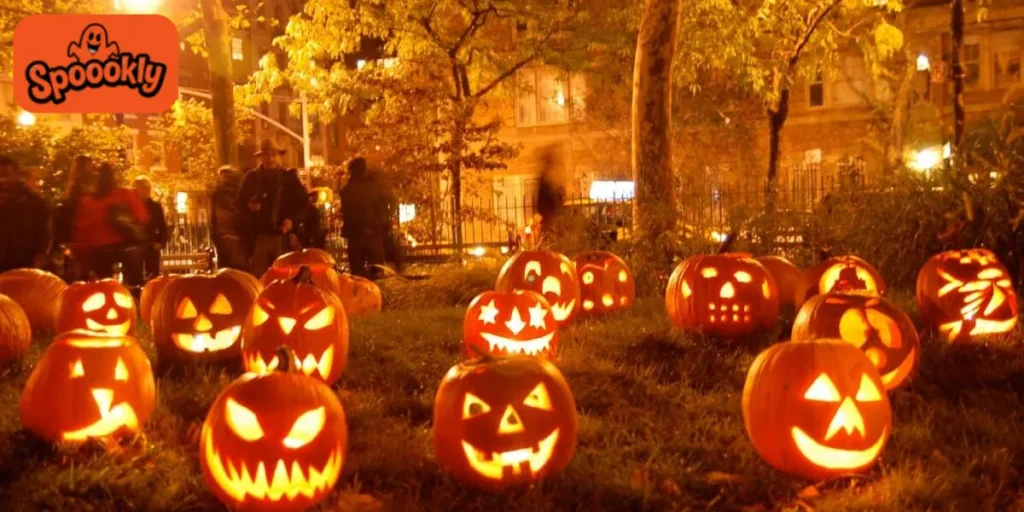
In neighborhoods where Halloween is a big community event, some Jewish families participate to strengthen social bonds.
They see it as a chance for children to interact with neighbors and feel included. For them, it’s more about being part of the local culture than observing a holiday.
Jewish day schools and religious schools often handle Halloween differently. Many Orthodox schools ignore it entirely, focusing on Jewish studies and upcoming Jewish holidays.
Conservative or Reform schools may acknowledge it but avoid official celebrations, leaving participation up to individual families.
Personal Stories and Family Traditions
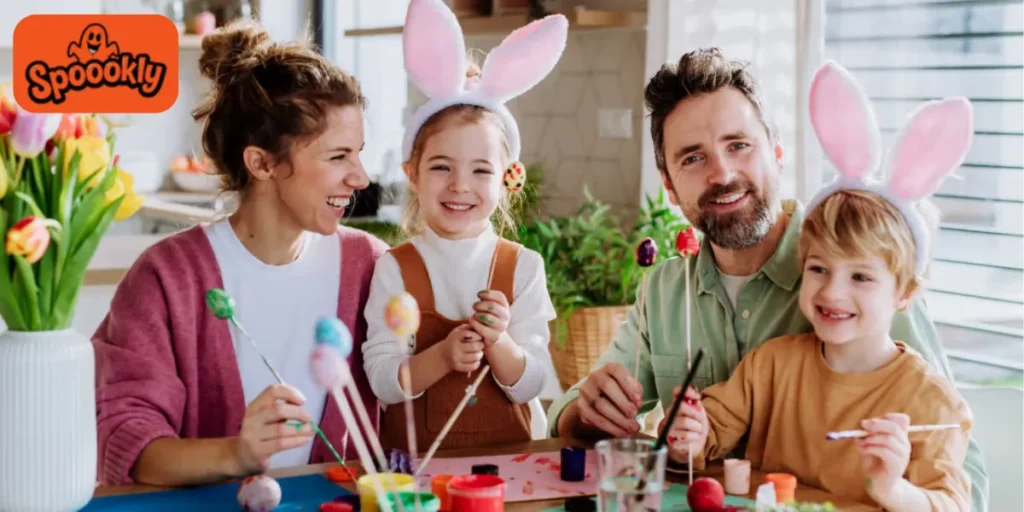
I’ve met Jewish parents who take very different approaches to Halloween. Some let their kids dress up in fun, non-spooky costumes and go trick-or-treating, but they skip haunted houses or religious imagery.
Others host small at-home events, where the focus is on candy and games without Halloween symbolism. On the other hand, I’ve spoken to families who prefer to use October 31st as a regular evening.
They might have a family dinner, attend a Jewish learning session, or plan an activity that reflects Jewish culture. This approach allows them to avoid Halloween entirely without feeling like they are missing out.
How Jewish Schools and Synagogues Address Halloween
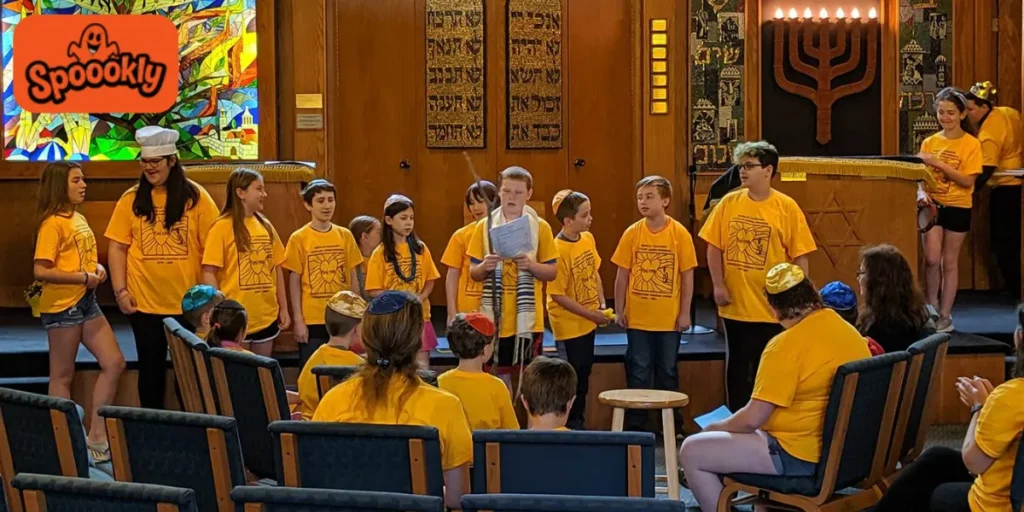
Synagogues typically do not host Halloween-themed events. Instead, they may schedule regular Torah study or community activities that keep the focus on Jewish life.
Some may hold discussions for parents about how to navigate cultural holidays in a way that respects Jewish values. Jewish schools, particularly those with religious curricula, are careful about not integrating Halloween into their programming.
In many cases, they use it as a teaching opportunity to explain the differences between Jewish and non-Jewish traditions. This helps children understand why their family might make a different choice than their friends.
Conclusion
Whether Jewish people celebrate Halloween comes down to individual belief, tradition, and comfort level. Some embrace it as harmless community fun, while others avoid it to maintain religious and cultural boundaries.
Both approaches exist within the Jewish world, reflecting its diversity and adaptability. From a faith perspective, Jewish tradition encourages staying rooted in one’s own customs.
From a social perspective, participation can help build community connections. The decision often balances these two values, and each family finds its own middle ground.
For Jewish parents, guiding children through these choices is a chance to discuss faith, identity, and respect for others’ traditions. Whatever the decision, the key is understanding the “why” behind it.
FAQs
No. It’s not a Jewish holiday and has roots in non-Jewish traditions, which is why many observant Jews avoid it.
Yes. More secular or Reform Jewish communities may participate in a purely cultural way.
Purim is the closest, featuring costumes, treats, and community events rooted in Jewish history.
It depends on family choice. Some allow it with non-spiritual costumes, while others avoid it.
They focus on Jewish holidays and avoid incorporating customs from other religions into their curriculum.

